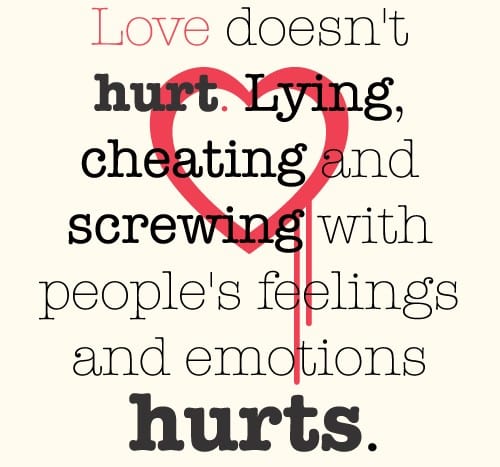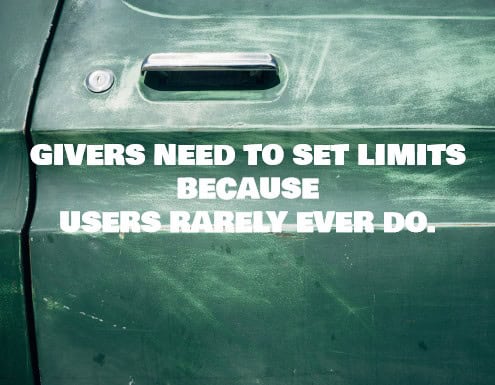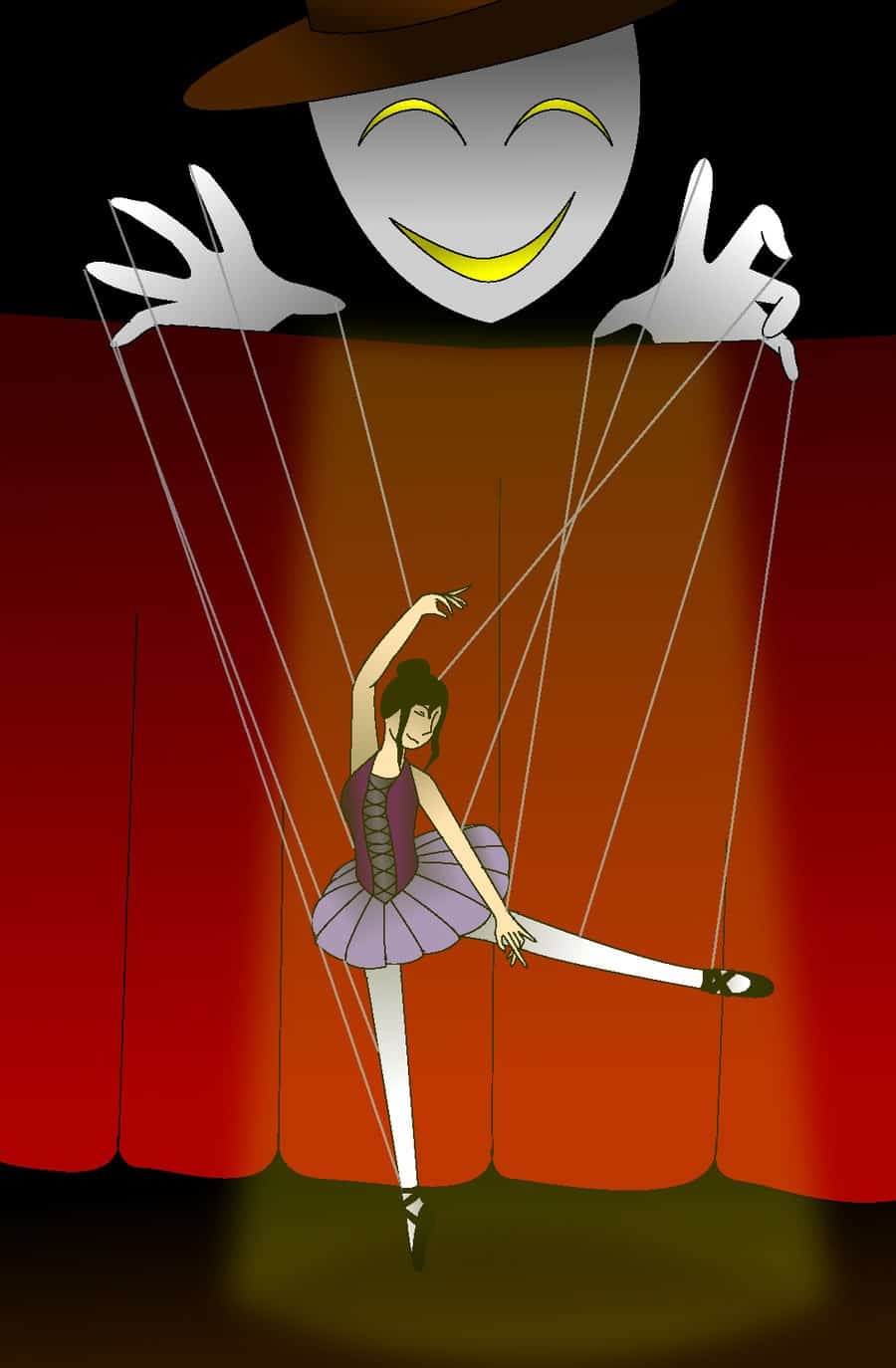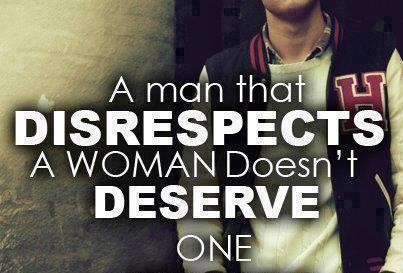The mystery surrounding why some women stay in unhappy relationships for extended periods has long been debated. One possible explanation is that they lack clear deal breakers – non-negotiable boundaries that signal it’s time to reevaluate the relationship. These boundaries serve as warning signs, indicating that a particular partner or dynamic can ultimately cause harm.
The concept of deal breakers is highly personal and may vary from person to person, influenced by individual values and experiences. That being said, certain red flags are commonly recognized as strong indicators it’s time to reassess the relationship.
Abuse (of any kind)

The scars of abuse are often deep-seated and far-reaching, capable of shattering one’s confidence and sense of identity. The poignant phrase ‘a good man will ruin your lipstick and not your mascara’ serves as a poignant reminder that true love doesn’t equate to control or harm. When we’re subjected to any form of abuse – physical, emotional, sexual, or otherwise – it’s crucial to recognize the red flags and prioritize our well-being by taking steps to distance ourselves from the toxic situation.
In reality, an abusive individual is not a loving partner, but rather a perpetrator who seeks to dominate and harm.
Dishonesty

When considering the concept of dishonesty in relationships, one common scenario that may arise is the notion of infidelity. However, what’s equally significant is the broader issue of whether someone is prone to lying or deception. Trust is a fundamental component of any romantic partnership, and it can be challenging to establish a sense of security with an individual who lacks integrity.
Neglect

When companionship feels hollow, it’s natural to wonder if being with others is truly fulfilling. The sensation of being utterly alone can be disconcerting, especially when shared moments lack depth or intimacy.
Humiliation

When someone disrespects you publicly by embarrassing, teasing, or belittling you in front of others, it’s a form of humiliation that can leave you feeling worse, not better.
Telling your private business

When sharing your personal experiences with a partner, it’s essential to remember that your life is your own story to tell. Just as you wouldn’t filter your thoughts for others outside the relationship, you shouldn’t feel pressured to edit what you share with each other either. The beauty of being in a partnership lies in being able to openly discuss and explore each other’s lives without fear of judgment or censorship.
Your partner should respect your autonomy and allow you to share as much or as little as you’re comfortable with, without attempting to control the narrative or dictate what’s acceptable.
Sexual pressure

In a healthy sexual dynamic, both partners should feel comfortable and eager to engage in intimate activities. However, if you consistently feel forced into situations that don’t align with your desires or comfort level, it’s essential to recognize that this pressure can be a significant red flag. Rather than settling for an unfulfilling experience, it’s crucial to prioritize your own needs and well-being.
This might involve reevaluating the relationship or seeking out new connections where you feel valued and respected.
Using you for money

When someone consistently relies on you for financial support, it’s essential to reevaluate the dynamic. Perhaps he’s perpetually broke and always asking you to cover dates, or maybe he’s constantly short on cash and borrows small amounts without ever repaying them. In these situations, it’s crucial to recognize when you’re being taken advantage of. Don’t compromise your financial stability by shouldering someone else’s expenses.
You deserve better than to be drained of your resources due to a relationship.
Being a user, period

The concept of ‘being a user’ transcends monetary transactions alone. It’s equally applicable to the way we engage with other valuable resources like cars or even personal relationships. Here, the key term is ‘relate’. When one party consistently gives more than they receive, it signals an imbalance that may not be sustainable in the long run.
Manipulation

If your partner has you feeling like a puppet on a string, it’s likely they’re manipulating you. This common dynamic can leave you feeling uncertain, anxious, and even confused. To better understand this toxic pattern, explore the definitive signs of manipulation at [link].
Not keeping his word (all of the time)

It’s not uncommon to encounter situations where someone fails to follow through on their commitments, leaving us feeling frustrated and wondering if they’re even worth our time. The woman in question, for instance, might have been left staring out the window after her boyfriend cancelled plans at the last minute. While we understand that life is unpredictable and occasional mishaps do happen, it’s crucial that our relationships be built on a foundation of reliability and trust.
When someone consistently fails to keep their word, it raises red flags about their level of integrity. Make sure your partner is dependable, and you’ll save yourself the stress and heartache that comes with dealing with broken promises.
Not “claiming” you

It’s peculiar when only the individuals involved know about your relationship, giving rise to suspicions of secrecy or perhaps even deception. The notion that you and this person are together, yet nobody else seems to be aware, raises questions about their character and yours. If you’re not confident enough in your relationship to publicly acknowledge it, then why should you expect others to take it seriously?
Perhaps the lack of transparency is a reflection of underlying issues or a sign that one (or both) of you aren’t ready to fully commit.
Name calling

While pet names can be sweet and endearing, name calling is a different story altogether. When someone consistently uses derogatory language or insults, it’s a clear indication of a lack of respect for the other person. This type of behavior can’t be excused simply because it’s done in the heat of the moment, as it perpetuates a toxic dynamic that erodes trust and self-esteem.
Furthermore, name calling often stems from a deeper issue, such as anger or insecurity, which needs to be addressed rather than dismissed. Ultimately, it’s crucial to recognize that name calling is a form of emotional abuse and should not be tolerated in any relationship.
Flirting with your friends

When a would-be suitor shows interest in your social circle rather than just you, the warning signs become loud and clear. A guy who flaunts his flirtatious nature with friends is likely to be arrogant and reckless, and it’s essential to recognize the difference between friendly banter and overt flirting. While some guys might try to downplay their behavior as harmless teasing, it’s crucial not to give them the benefit of the doubt.
If you catch him in the act of flirting shamelessly with your friends, there’s little room for discussion – a simple ‘I’m sorry’ followed by an immediate exit from your life is often the most effective response.
Not taking you out

When a person genuinely values someone, they typically take an interest in their growth and well-being. This manifests in various ways, including wanting to share the other person with others. If you’ve been confined to a single space – be it a couch or bed – and haven’t experienced any external interactions, it may indicate that the relationship is lacking in this crucial aspect. It’s essential to recognize that a healthy connection involves mutual investment and support.
“Being single” online

When individuals opt to leave their online relationship status blank or label themselves as ‘single’, that’s a different story altogether. However, if the situation is the opposite – where one person is in a committed relationship and the other isn’t, but consistently exhibits questionable online behavior (flirting, posting provocative content from admirers, making false claims about not being in a relationship), it’s understandable to question their actions.
In these cases, if the relationship has reached a point of no return, it may be best to bring it to an end.
Disrespect

When it comes to relationships, respect is a fundamental aspect that can make or break an otherwise healthy partnership. At its core, respect involves valuing and honoring someone’s presence, actions, and feelings. In fact, if your partner fails to demonstrate this level of esteem towards you, it can be a major red flag. For many people, the lack of respect is a non-negotiable issue that can ultimately lead to the demise of the relationship.